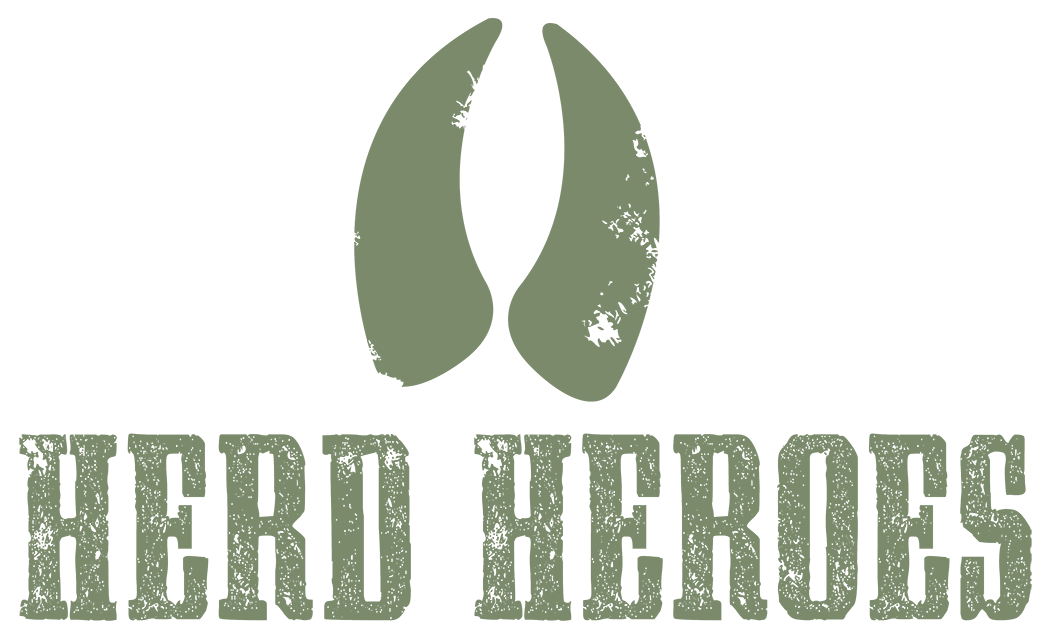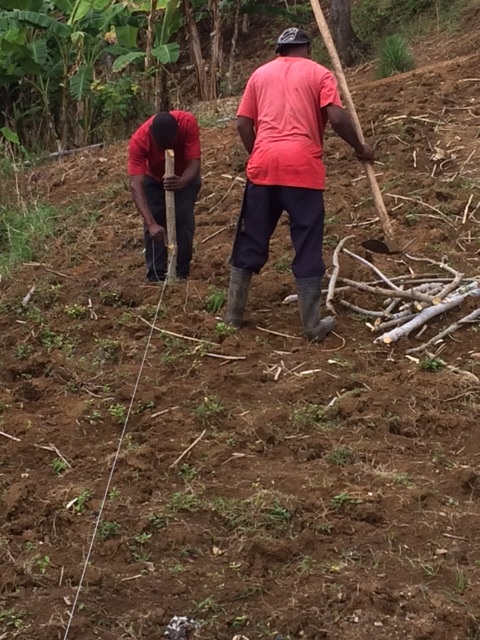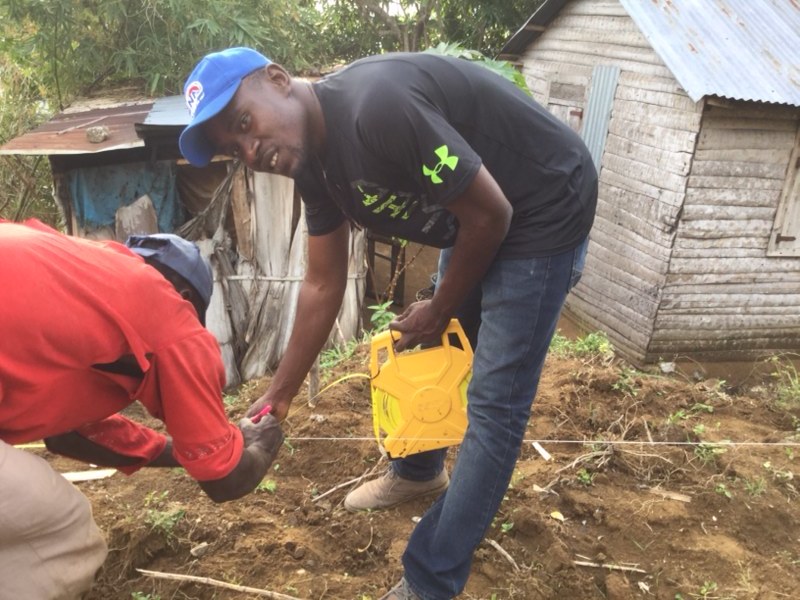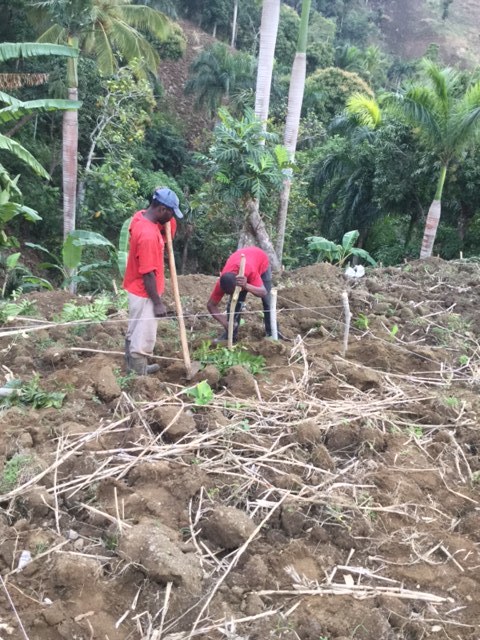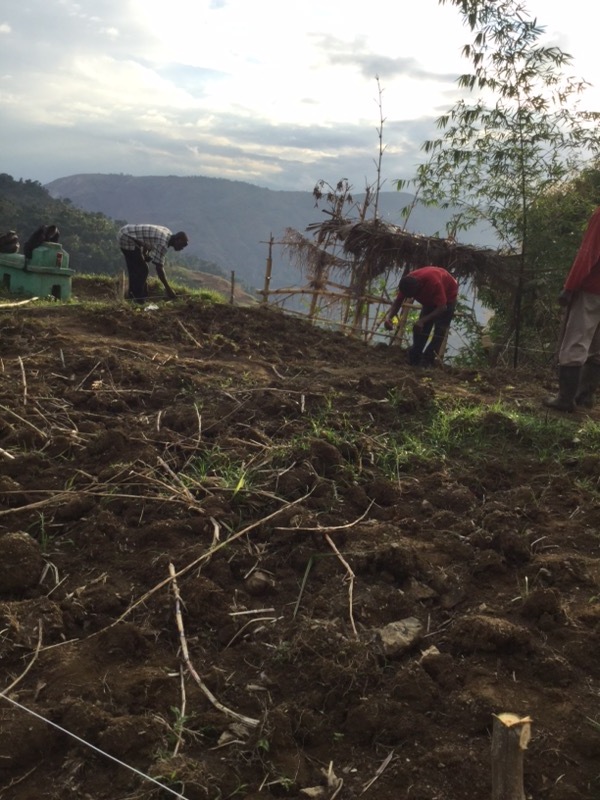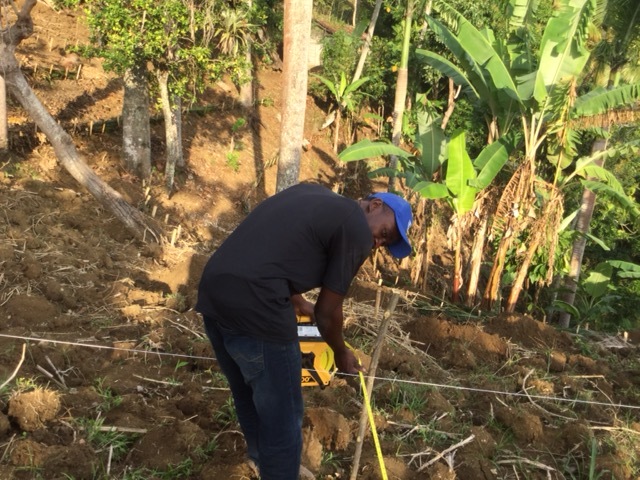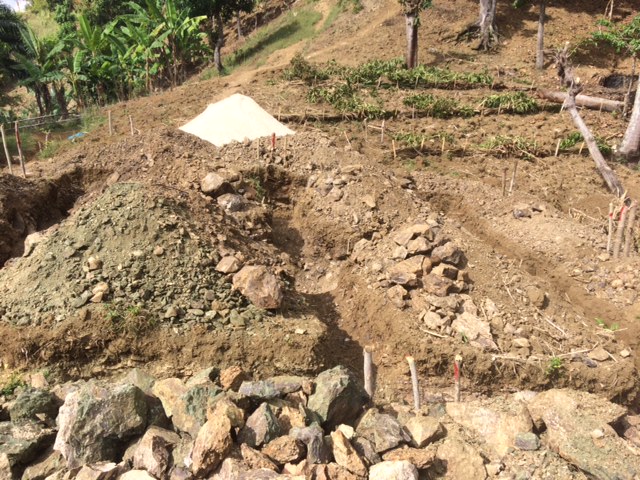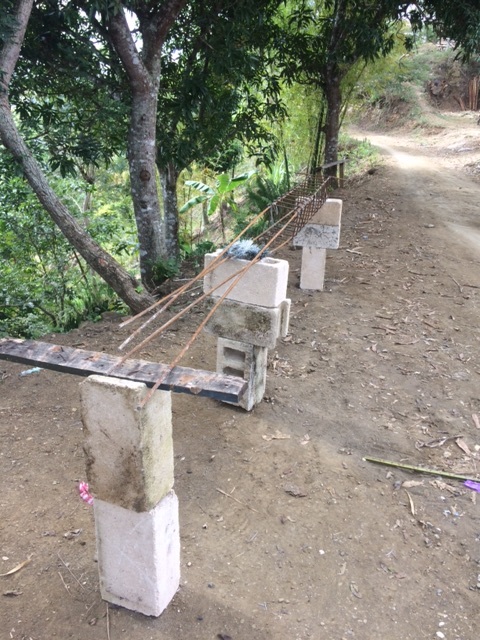This past weekend we broke ground on our Animal Health Field station in L’Azile, Haiti. Our goal is to build an animal protection facility that is hurricane resistant and sustainable as one of the most common cause of the loss of live stock is due to hurricanes and other natural disasters such as flooding. The Animal Health Field station will be used primarily to treat animals within the community and also provide protection of vulnerable animals, from predators. Approximately, 25% of livestock do not survive after birth, and the care and protection provided by the field station could drastically decrease this statistic.
In order to provide care to the community’s animals, the field station will have trained animal care professionals year-round when veterinarians and technicians are unavailable. This is one of the distinguishable factors about our organization, Herd Heroes. At Herd Heroes, our goal is to train people to provide health care to their livestock so that the community becomes more self-sufficient and less dependent on the help of our organization.
The animal health field station will house valuable breeding animals which will provide the community with improved genetic livestock. On average, on the market, a goat in L’Azile sells for about $120. However, there bigger and healthier the animal, the more money they will get in return for selling it.
To create a sustainable structure, Herd Heroes decided to add a water collection apparatus and use the animals manure for agricultural purposes. The rain water collection system will primarily be used to nourish the animals during veterinary procedures. It is an efficient and sustainable way to provide care to the animals without having to use the community’s resources. The animals manure will be collected and used as fertilizer for the community’s crops as a majority of the inhabitants in L’Azile depend on their crops to feed their families.
We are very excited to have started this project and strongly believe that our Animal Health Field Station will have a positive effect on the L’Azile community. The field station will provide protection, veterinary care, promising genetics and sustainable living though several initiatives and aspects built into the field station.
